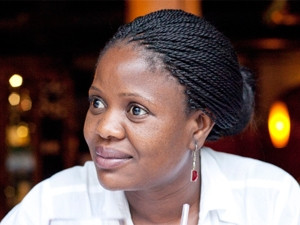
It's frustrating listening to Spiwe Chireka share her vision and carefully crafted strategies for growing the reach and impact of Africa's telecoms sector. It's frustrating not because her plans are pie in the sky, but because they're so smart that you want Chireka to be heading the government's communications department - or at the very least running Telkom or the industry regulator. Instead, she's an analyst with IDC, drafting strategies as the programme manager for telecoms and networking in Africa. The companies paying for her research and advice often call in IDC once a strategy is already in place and they want help with its execution. "Most of the time, a decision has already been made and I come in to advise on how to actually do it, and it's a bit late to say, 'I don't think you should go there'. We don't often get to go in and tell them this strategy isn't going to work, you need to do a complete turnaround."
She longs to get involved in creating telecoms strategies before they're rolled out. "I'm on this side of the fence, looking at it from a critical point of view, but ultimately I want to be on the other side changing things," she says. "It's frustrating to write brilliant reports and give excellent advice and nobody takes it, or they take it and mess up the implementation, so ultimately I want to be more of an influence on the industry."
All in good time, she says. "Right now, I'm at the stage where I'm learning to manage and lead and inspire, which you need if you're going to end up at Telkom or a smaller operator or with a regulator or the government."
Rooting for Telkom
Her knowledge of the telecoms markets in Africa certainly deserves to have a bigger impact, and she jokes that one day, I'll be interviewing her as the communications minister or the head of Telkom. Then she admits that's never going to happen.
"You know how Telkom works - you have to be a political appointee and know the right people. But I'm rooting for Telkom. It could be doing so much better if only they could get the running right."
One of Telkom's biggest problems is implementation, she says. The company isn't short of great ideas - some of them come from IDC, she says - but it falls over at turning ideas into action.
"Ultimately I'd want to run Telkom. It's something I've thought about since I did my first project with them in 2007. They were looking at acquisitions in Africa so we did a presentation and one thing I really didn't agree with was taking a plane-load of South Africans to Nigeria to set up a mobile entity. You need to have local people running stuff or it's not going to work. But I was too junior to say anything."
She's certainly found her voice since those days. Chireka is loved by the media because she's not afraid to express strong opinions and put her name to them. Other analysts decline to comment on controversial issues or request anonymity, fearing they will no longer be privy to useful meetings with ICT companies if they criticise them in public.
But I'm rooting for Telkom. They could be doing so much better if only they could get the running right.
Spiwe Chireka, IDC
Chireka's forthrightness has earned her respect, not rejection, although she laughingly recalls how she once annoyed Vodacom so much that she was summoned for some 're-education' to explain why the company disagreed with her.
Chireka, 32, was born in Zimbabwe but enrolled at the University of Cape Town in 2000 even though her home country is renowned for high-quality education. "I really wanted to do IT and in Zimbabwe at that time, you had degrees like medicine and law but IT wasn't really established," she says.
Making a difference
Her first degree was a B.Sc in Computer Science, with a slight change of direction for her further studies. "I didn't enjoy coding even though I was good at it, but I liked the whole concept of IT making a difference in business. I wanted to be the person who sits between business and IT. My team members for projects said I was really good at putting together what look like disparate things and coming up with the big picture."
She completed a B.Com in Information Systems, an Honour's degree in information systems and a postgraduate diploma in enterprise management. After university, she joined business consulting firm Frost & Sullivan as an intern, expecting to be kept busy photocopying and sending e-mails. Instead, she was told to do a study on broadband services in Africa looking at 17 countries. "It was my first telecoms work and I had to learn about broadband and the different technologies and services and the practical aspects of the market and how different policies would affect it."
After four months of working long hours, reading copious amounts of information and calling people across the continent, she produced more than 300 pages on the topic and her future was cemented.
She joined IDC in 2011 to head a team of analysts in Ghana, Kenya and Nigeria, working for African telecoms operators, equipment suppliers, regulatory bodies and foreign telcos eyeing the African market.
When she's off duty, she keeps fit by doing an intensive hour-long workout at boot camp every Saturday. "It's high-velocity training for an hour and after that I have to crawl back to my car," she jokes.
She also confesses to being a karaoke queen. "I'm a closet performer. Put me in a karaoke bar any day and I'll belt it out. Dancing Queen by Abba or anything by Marvin Gaye. The thing I've yet to discover is whether I'm as good as I think I am!"
First published in the May 2014 issue of ITWeb Brainstorm magazine.
* Article first published on brainstorm.itweb.co.za
Share